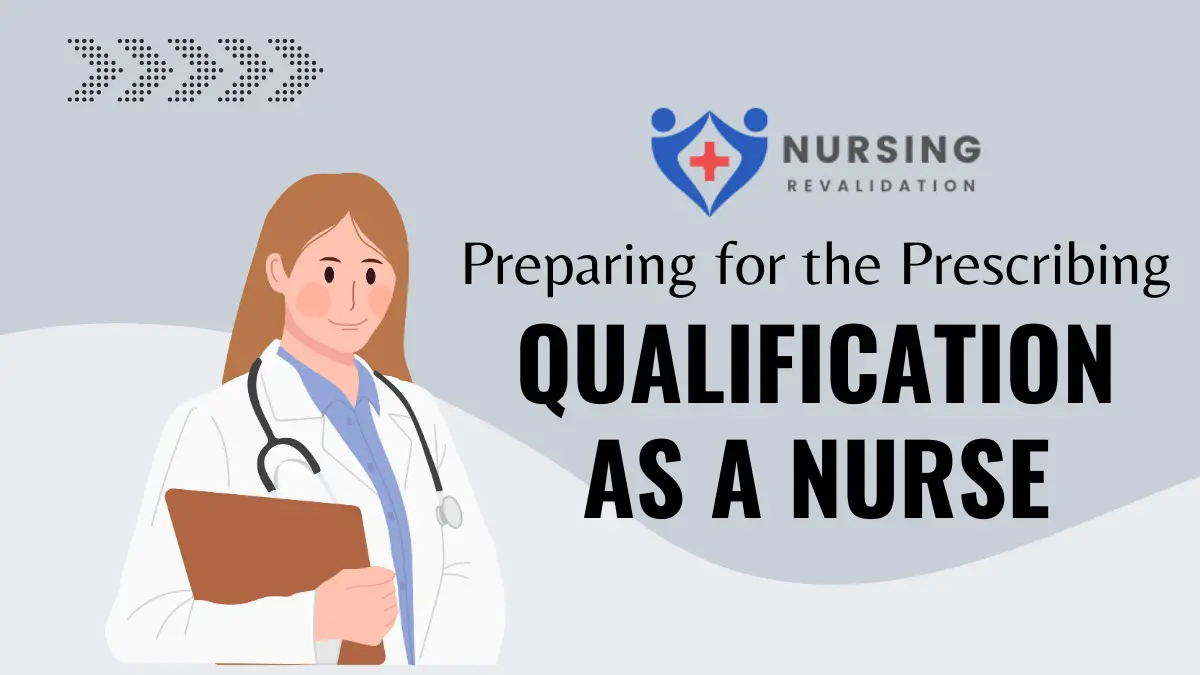Nursing is a profession built on a foundation of care and responsibility. As nurses progress in their careers, many seek to expand their skill set and scope of practice. One significant milestone in this journey is obtaining the prescribing qualification, which empowers nurses to prescribe medications autonomously.
Understanding the Prescribing Qualification
What is the Prescribing Qualification?
The prescribing qualification grants nurses the authority to prescribe medications within their area of expertise. It signifies a significant advancement in a nurse’s career, enabling them to take on additional responsibilities in patient care.
Requirements for Eligibility
Before embarking on the journey to become a nurse prescriber, candidates must meet certain criteria. These typically include:
- Educational Background: Candidates must hold a relevant nursing qualification, such as a Bachelor of Science in Nursing (BSN) or equivalent.
- Clinical Experience: Most programs require candidates to have a minimum number of years of clinical experience, ensuring they possess the necessary skills and knowledge to prescribe safely and effectively.
- Professional Registration: Nurses must be registered with the appropriate regulatory body, such as the Nursing and Midwifery Council (NMC) in the UK, to pursue the prescribing qualification.
Preparing for the Prescribing Qualification
Choosing the Right Program
Several educational institutions offer prescribing courses for nurses. When selecting a program, consider factors such as accreditation, curriculum content, and delivery format. Look for programs that are recognized by regulatory bodies and provide comprehensive training in prescribing practices.
Curriculum Overview
A typical prescribing qualification program covers essential topics such as pharmacology, legal and ethical considerations, clinical assessment, and prescribing practices. The curriculum may include both theoretical coursework and practical training, allowing students to apply their knowledge in real-world scenarios.
Study Resources
To excel in the prescribing qualification program, nurses should utilize a variety of study resources. These may include textbooks, online courses, practice exams, and clinical guidelines. Engage with peer support groups or study partners to enhance learning and share insights.
Clinical Placement Opportunities
Hands-on experience is invaluable in preparing for a prescribing role. Seek out clinical placement opportunities that align with your area of practice. These placements provide valuable exposure to prescribing processes and allow nurses to develop confidence in their decision-making abilities.
Navigating the Examination Process
Format and Structure
The prescribing qualification examination typically consists of multiple-choice questions, extended matching questions, and objective structured clinical examinations (OSCEs). Familiarize yourself with the format of the exam and practice answering sample questions to build confidence.
Revision Strategies
Effective revision is crucial for success in the prescribing qualification exam. Develop a study schedule that allows ample time for review and practice. Focus on areas of weakness while reinforcing your understanding of core concepts. Utilize revision aids such as flashcards, mnemonics, and mock exams to enhance retention.
Preparing for OSCEs
OSCEs assess clinical competence through simulated patient scenarios. Practice OSCE-style stations to improve your clinical reasoning and communication skills. Pay attention to time management and prioritize patient safety in your decision-making process.
Conclusion
Becoming a nurse prescriber is a challenging yet rewarding endeavor. By understanding the requirements, diligently preparing, and navigating the examination process effectively, nurses can successfully obtain the prescribing qualification and advance their careers.
Table: Overview of Prescribing Qualification Requirements
| Requirement | Details |
|---|---|
| Educational Background | Bachelor of Science in Nursing (BSN) or equivalent |
| Clinical Experience | Minimum years of clinical experience required |
| Professional Registration | Registration with regulatory body (e.g., NMC) |


